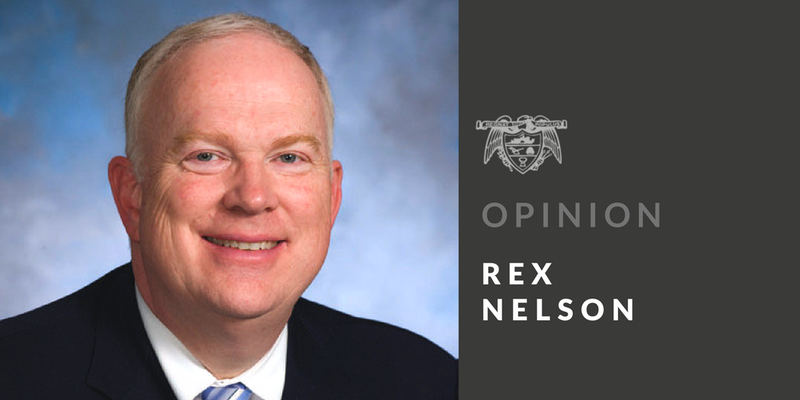Everything is different in this year of the virus. I hope my dove-hunting friends had a successful Labor Day weekend. But dove hunting is as much a social event as it is a sporting activity in the South, and the large meals that normally accompany the first Saturday in September and the Labor Day hunts likely were downscaled in an era of social distancing.
Whereas sitting in a deer stand or waiting on a wild turkey can be solitary activities, dove hunting is best when a field is surrounded by numerous hunters, talking loudly and making fun of buddies who miss shots.
The first day of dove season was always circled on the calendar at our house when I was a boy. My father loved opening day and planned for it throughout the summer. The weeks on either side of Labor Day meant four things when I was growing up in southwest Arkansas--the start of school, the start of football season, the start of dove season and my birthday (which falls on Sept. 2).
Though it's usually hot in early September in Arkansas, the advent of dove season long has been a sign that autumn is near.
As Jonathan Miles once wrote in Field & Stream magazine: "More than the reappearance of school buses on the roads, it's the dove opener that signals summer's passing in the Deep South, which is perhaps why dove shoots--big, communal events with dozens of hunters scattered throughout a field--have so long been paired with celebrations, barbecues, grand revels. In Northern climes, the hunting of mourning doves--which some consider songbirds--is a controversy-scarred topic. ... In the South, however, dove hunting is a venerable tradition, older than bourbon and as beloved as college football.
"Dove hunting offers challenging pass-shooting, it's true, but here it's about much more than that: kids, wives, dogs, camaraderie, post-hunt cocktails, grilled dove breasts and pork barbecue, old custom and the changing of the seasons."
Many dove hunters only go once a season. They head out on opening morning, and that's it. College football takes up the rest of their fall Saturdays. Still, they look forward to opening day and all it signifies. For these people, opening day of dove season is part of the rhythm of their lives. It's about so much more than killing birds. It's about friendships and tall tales. It's about getting outside and watching the sun come up over the Arkansas countryside. It's about that lavish brunch after the hunt.
"Men like Nash Buckingham and Robert Ruark penned their impressions and laid down on paper what would become for me the foundation of my hunting experience," R. Michael DiLullo wrote in an essay on dove hunting. "These men shared a common love of being afield with their dogs. They hunted a variety of game, some on different continents, but they both shared a fondness for the Southern dove hunt. ... Most of Southern hunting, I would find, is more on a social level than of solitude and individualism. The lonely baying of a coon dog across a dark swamp, the excitement of a pack of hounds as they jump deer, the flush of a quail covey were all visceral and shared experiences.
"Southern dove hunting is a cultural social function; it is about camaraderie and, more importantly, tradition. It is a community event, and it is quite common to see three or more generations of family members heading out together to the dove fields. Dove hunting's history and traditions can be traced far back into the culture--traditions which have been handed down through generations of Southern hunters, some of who's lineage can be traced to the original settlers of the very land on which they hunt."
If dove season opened on the Saturday of Labor Day weekend, my father and I would be out there Saturday morning, Saturday afternoon, Sunday afternoon (Sunday morning was reserved for the First Baptist Church of Arkadelphia), Monday morning and Monday afternoon. My dad was a great shot. He had been raised poor in Saline County during the Great Depression, and being able to shoot well at squirrels and rabbits meant the difference between a supper with meat on the table and one with only biscuits and gravy.
The Labor Day morning hunt typically was with my father's former college football teammate, O.J. "Buddy" Harris, and his two sons, Cliff and Tommy. Cliff played college football at Ouachita Baptist University (where both our fathers had played in the 1940s) and then spent the decade of the 1970s as a Dallas Cowboy. It was announced earlier this year that he will be inducted into the Pro Football Hall of Fame. Tommy played college football at the University of Arkansas and made one of the key plays in the Razorbacks' Jan. 1, 1976, Cotton Bowl victory over the University of Georgia.
"In the South, dove hunts do not draw quietly to a close," Miles wrote. "Sometimes, at the simplest end, a grill and cooler are hauled to the edge of the field, and the doves' breasts are grilled--usually swaddled in bacon, maybe with a jalapeno tucked inside--as the hunters tell and retell stories of the day's shooting. ... When the sun sets over the fields, and that flat Delta darkens, the air seems cooler, not just from the sun's departure but from a gathering chill that is creeping toward my bones. It's a subtle reminder that autumn is on its way--and I can't help but feel, after a day in a dove field, that it has been properly welcomed."
Autumn doesn't officially arrive until later this month. but many Arkansans welcomed it at daylight last Saturday. Long live the tradition of Arkansas' Labor Day weekend dove hunts.
--–––––v–––––--
Senior Editor Rex Nelson's column appears regularly in the Arkansas Democrat-Gazette. He's also the author of the Southern Fried blog at rexnelsonsouthernfried.com.
